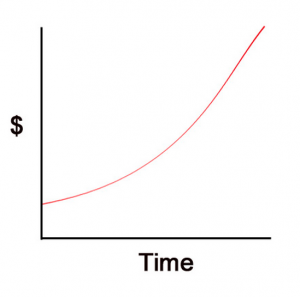Don’t quit school to play poker!
Editor’s note: This column is an edited excerpt from Jeff Hwang’s book, Advanced Pot-Limit Omaha: Small Ball and Short-Handed Play.
If you are in college and are thinking about dropping out to play poker, don’t do it.
If you spend much time reading about poker — either in print or on the Internet — you know a lot about guys who quit their jobs or quit school to play poker full time. In fact, some of the guys who write the material that you read in poker books and magazines have done one if not the other, and a lot of them go so far as to make a point of it, presumably to demonstrate how successful they have been playing poker.
That said, it is absolutely the wrong message, particularly for those who are still in college.
Now, if you are in the workforce and are thinking about quitting your job to play poker, cool; I don’t generally recommend it, but that’s your business, and you are better equipped to make your own decisions than I am. But if you are still in college and are thinking about dropping out to play, my take is, “No way,” no matter how good you are or how much it pains you to finish school.
If you are contemplating playing poker full time, you’ve got to leave yourself outs should something go wrong. The fact is that there are a lot more opportunities in this world for people with four years of college and a diploma than there are for those with three years of college and nothing to show for it. So, even if your heart isn’t really in it, my suggestion is that you complete your college career, even if it means finishing it with a string of C’s.
Once you’ve done that, you can always set aside a year or two to play poker full time, whether it is because you are doing it for the experience or because you intend to take a shot at making a career of it.
Poker as a Career
The discussion thus far has related primarily to college students thinking about quitting school. But let’s say that you are in the workforce, you have a fair amount of experience playing poker, and you are a net winner.
Now, if the wave of people you read about quitting their jobs to play poker makes you think that you can and want to do the same, there is a lot more to think about, specifically the following:
1. Selection bias
2. The evolution of the game
3. The pressure of playing professionally
4. The résumé gap
Selection bias: When you read and hear about all of the players who have quit their jobs and had extraordinary success playing poker, there is an element of selection bias, in that the only guys you hear about are the successful ones. Nobody spends much time talking about all of the guys who quit their jobs to play poker and failed, and I assure you that the number of failures outweighs the number of successes by an order of magnitude.
The evolution of the game: Poker is fundamentally a much tougher game in which to win a lot of money nowadays than it was just a few years ago.
For one thing, poker players as a group are much better educated in 2009 than they were back in 2005. Back then — at the beginning of the no-limit hold’em live cash-game boom, when large volumes of players routinely shoved their stacks in with one pair — a very tight player who did nothing but patiently wait to flop a set probably could have made a decent living playing $1-$2 no-limit. Nowadays, a player employing the same strategy might not even be a winner.
Secondly, many of the weaker players have been weeded out, either because they lost too much money or simply because they figured out that they aren’t any good at the game.
Lastly, as I write this, the state of the economy has recreational players as a group tightening their wallets and playing less poker, leaving the professionals to duke it out with each other for the stacks of a smaller group of fish.
The pressure of playing professionally: Playing poker because you need to is a lot different from playing poker because you want to. The added pressure of needing to earn your income from playing poker is something that most players can do without. Also realize that the game you now enjoy playing part time could become a lot like work when playing full time. You might have fun for a year, or a couple of years, but you should ask yourself if this is something that you think you would continue to enjoy doing five years from now, or 10 years from now.
The résumé gap: When taking the time to play poker full time, the ensuing résumé gap could be a major obstacle to overcome if you decide to return to either school or the workforce.
The gist of it is that there are lots of risks associated with playing poker professionally. Moreover, doing so is not nearly as easy as it seems, nor as easy as it was just a few years ago.
Submit your review | |






